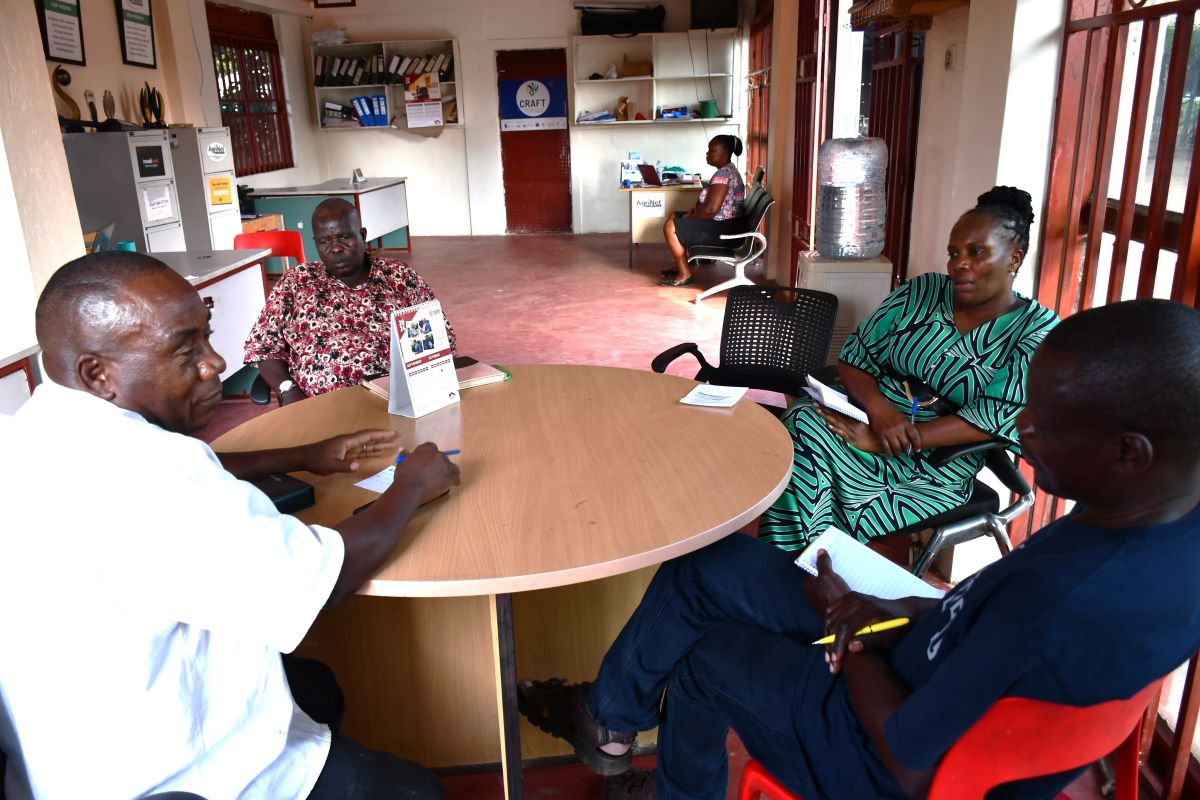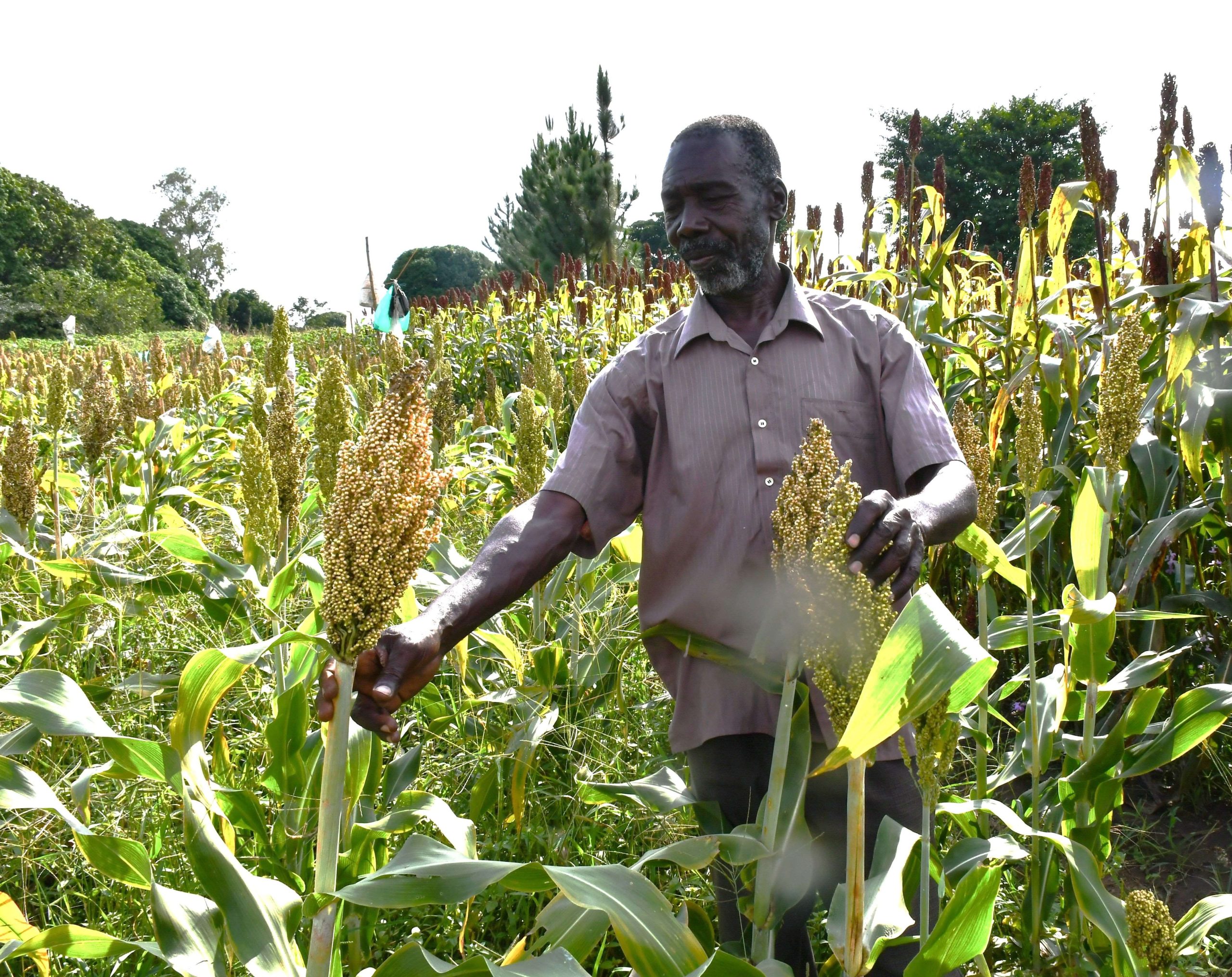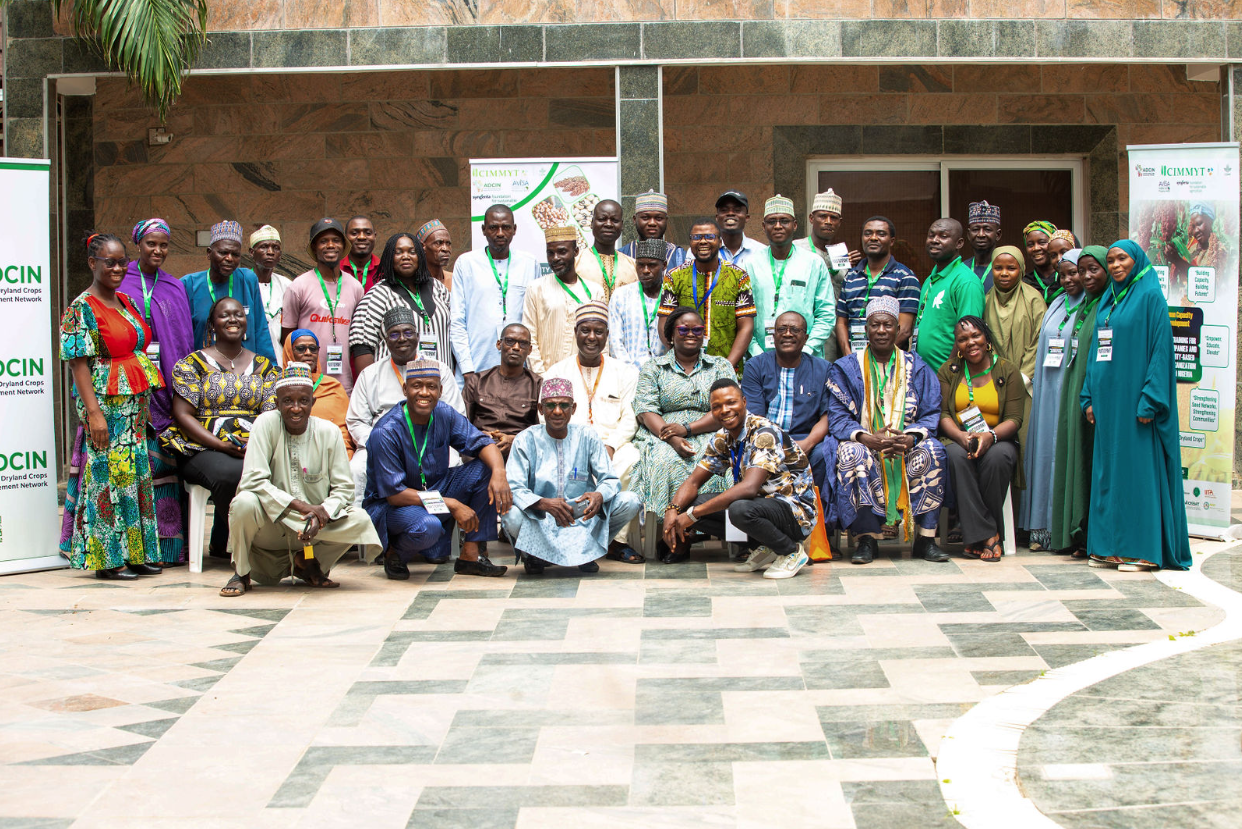At the heart of the agricultural sector, grain off-takers/processors play a crucial role in ensuring that farmers have access to quality seeds that can increase productivity and improve livelihoods. One such processor, AgriNet in Uganda, led by Paul Nyande is deeply involved in managing the complex dynamics of seed and grain production, market demand and variety turnover making a significant impact on both the farming community and the wider agricultural market.
AgriNet is known for its role in grain and legume markets. The company buys a range of grains and legumes, including sorghum, finger millet, soybeans, and maize. After buying these commodities from farmers, the company adds value by processing and packaging them for a diverse market. Their customers range from markets that demand raw grain to high-end consumers who buy blended flour for products such as porridge. AgriNet operates its own milling facility, enabling it to efficiently meet the needs of these different markets efficiently.
Variety turnover is central to the processor’s work. Over time, crop varieties that have been in use for 30 or 40 years become less relevant as new research leads to the development of improved varieties. These newer varieties are better suited to evolving market needs, offering traits that align with current preferences for drought tolerance, disease resistance, and higher yields.

“We have definitely seen situations where the market asked for a particular variety, and we have worked with research institutions such as National Semi-Arid Resources Research Institute (NaSARRI) to fulfill that demand. This collaboration has led to shifts in what seed companies produce to keep pace with changing agricultural conditions and market needs,” explains the processor.
For example, through stakeholders’ interactions, AgriNet worked with NaSARRI, to communicate the market’s needs for crops such as maize and sorghum. NaSARRI produced foundation seeds based on these requirements, which the processor then marketed and distributed to specific farmers for production of certified seed that was given to grain producers. However, managing seed demand isn’t always straightforward, especially since the market can change rapidly.
“We’ve had instances where the market suddenly surged with high demand for sorghum seeds, but we couldn’t meet it,” says Paul. “Sometimes these opportunities arrive unexpectedly, and we’re not fully prepared to supply the required volumes.” Paul notes that they still need to promote and improve productivity, as there are gaps in farming practices that hinder maximum yields. One persistent challenge is Striga, a parasitic weed that significantly reduces cereal yields. To tackle this, Paul promotes crop rotation and integration, to help farmers manage such issues.
Despite these challenges, AgriNet has made strategic efforts to manage the risks associated with seed production. By working closely with partners like NaSARRI and using foundation seed, they have been able to balance supply and demand. The processor typically manages seed for one or two generations before reintroducing new varieties to keep up with changing market conditions.

The role of technology and partnerships
A key part of AgriNet’s work is maintaining a robust supply chain. Using digital platforms, they have developed a system to profile farmers, track training sessions, monitor input distribution and communicate with farmers in real time via SMS. “We can send out information about market prices, weather updates, or available seeds. It’s a great tool, but maintaining the platform requires significant resources to maintain the platform,” says the processor.
AgriNet currently works with around 2,000 farmers groups and have also developed an agent network to engage with these groups more effectively. Each agent works with multiple farmer groups, facilitating sales, input distribution, and grain purchases. This structure not only ensures efficient operations but also creates accountability by holding agents responsible for managing the process.
However, one of the biggest challenges facing processors is capacity. They need to expand their storage and processing facilities to take in more grain, especially during the rainy season. Without sufficient storage and drying facilities, their ability to process large volumes of grain is limited, which in turn affects their ability to meet market demand.
Balancing seed and grain markets
Paul emphasizes the difference between seed and grain. “For grain, we don’t face many issues. We can store it for a long time by fumigating it and keeping it safe. But seeds are different—you can’t keep them for long. They need to be used within a specific timeframe.” This dynamic adds complexity to the seed business, especially when the market shows a sudden spike in demand.
Pricing is another challenge. “We used to think about getting seeds cheaply—from research and then to farmers. But there are costs involved, and you have to consider the seed market carefully and how it compares with others,” he says. It’s important to find the right balance between affordable prices for farmers and maintaining sustainable business operations.
The way forward: Expanding capacity and supporting farmers
Paul is focused on expanding AgriNet’s storage and processing capabilities to better manage the supply chain and take in more grain during peak seasons. Increasing their capacity would allow them to meet the growing market demand more effectively.
There’s also a strong need to support smallholder farmers, particularly in terms of access to quality seed. “We need to ensure that farmers have access to quality inputs at affordable prices,” he emphasizes. “Subsidizing seeds or finding sustainable ways to produce them for the most vulnerable farmers could encourage the adoption of improved varieties, which would increase yields and incomes.”
Paul also acknowledges that improving farming practices is critical to achieving higher productivity. While they have good seed varieties available, the challenge lies in ensuring that farmers follow the correct management practices to fully realize the potential of these seeds.
AgriNet’s efforts have not gone unnoticed. The company has been recognized as one of Uganda’s top 100 medium enterprises for 2017/2018 and 2018/2019, a testament to its commitment to quality, innovation, and market responsiveness. This recognition highlights AgriNet’s ability to navigate the complex agricultural landscape while continuously striving to improve its operations and support the farming community.
In its mission to boost agricultural productivity, AgriNet benefits from key partnerships with NaSARRI, which works in collaboration with CIMMYT, through the Accelerated Varietal Improvement and Seed Systems in Africa (AVISA) project, to ensure farmers have access to improved seed varieties. By aligning research with market demands and processor capacity, CIMMYT and NaSARRI are helping to bridge the gap between innovation and practical solutions that directly benefit farmers.

 Dryland Crops
Dryland Crops 
